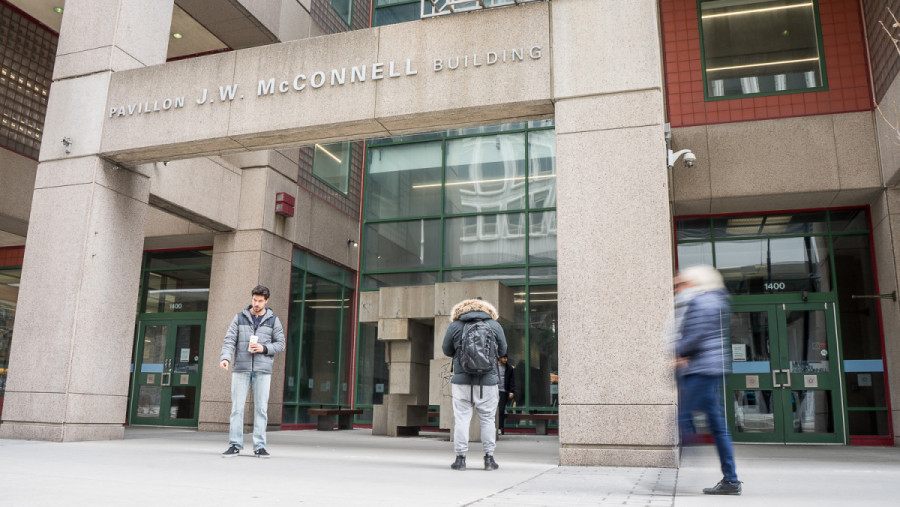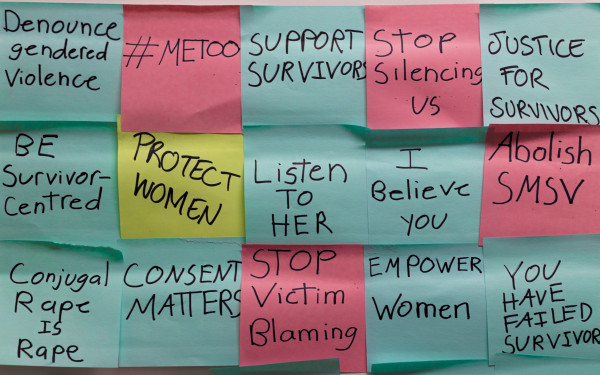Students Frustrated With Sexual Violence Committee
Laws Prohibiting Communication At Heart of Mistrust
“Talk to us,” said Camille Thompson, external and mobilization coordinator at the Concordia Student Union, about the lack of communication between Concordia’s sexual misconduct committee and students.
Frustration filled the room during a community conversation on Friday afternoon when students said they felt disheartened by the fact that they’re not involved enough in the committee’s work.
Every member of the committee has signed a non-disclosure agreement, which prevents them from updating students on whether they plan to meet their demands or not.
“They come and they’ve explained what they’ve done, and this is great, but we want to be part of the conversation,” said Thompson after the meeting.
“They’re talking about how much work they’re doing and I believe them, I see people are working, but we don’t see the work,” said Thompson.
Community conversations have been running since last winter to give people an opportunity to share ideas about how the school should handle complaints of sexual misconduct.
“It feels like it’s not really a conversation or it’s a one-way conversation like they’re taking and they’re not giving us things,” said Thompson.
Privacy legislation in Quebec lets complainants know about the status of their investigation, but can’t inform them if reprimands have been taken or the results of the investigation. This applies to any complaint filed against a professor or a staff member.
“We do take these things very seriously and act on them, we just can’t say what we do, which creates this feeling of maybe the university isn’t doing anything, which is not true,” said Lisa Ostiguy, chair of the sexual violence committee.
However, students say they feel left out of such conversations because they are more informed through third-party platforms, and not directly from the administration.
“We see articles from the CBC and The Link and The Concordian talking about fucked-up shit that happened,” said Thompson.
Ostiguy said her goal is to communicate to the university that the concerns raised in the climate review are being assessed.
“It isn’t only an administrative role, but it’s everybody’s role to address things that are concerning and I think we have to build that into our climate,” she said.
Ostiguy said Concordia is currently in conversation with other universities and CEGEPs about Bill 151 requirements.
Read More- English Department Climate Review Open About Faculty Sexual Violence
- Concordia Creative Writing Professor Harassment Allegations Dropped
- How Concordia is Preparing For the Anti-Sexual Violence Legislation
“We just continue to have a dialogue with them. It’s everything from Bill 151, to best practices, sharing of training materials,” said Ostiguy.
The committee will also look into ways in which other departments can signal if they would like to have a climate assessment.
“If there are things going on, or a climate that’s developing, it seems to us as a committee that there needs to be a way for the department to signal that they would like a review,” said Ostiguy.
The climate review out this week calls for a follow-up report of the English department in two years to re-evaluate the department’s climate.
The Concordia Association for Students in English have been in communications with students about the climate review and will be releasing a statement soon.





_600_375_90_s_c1.jpg)

